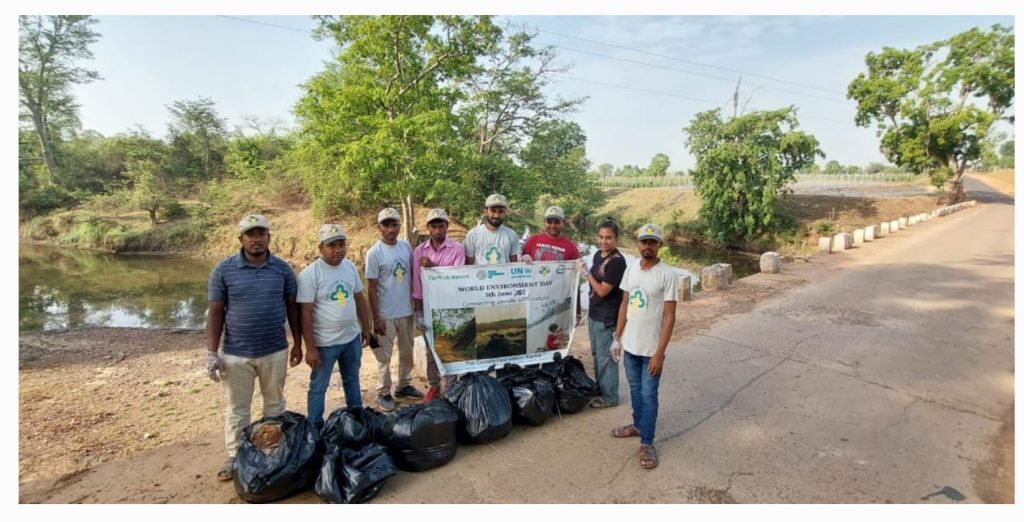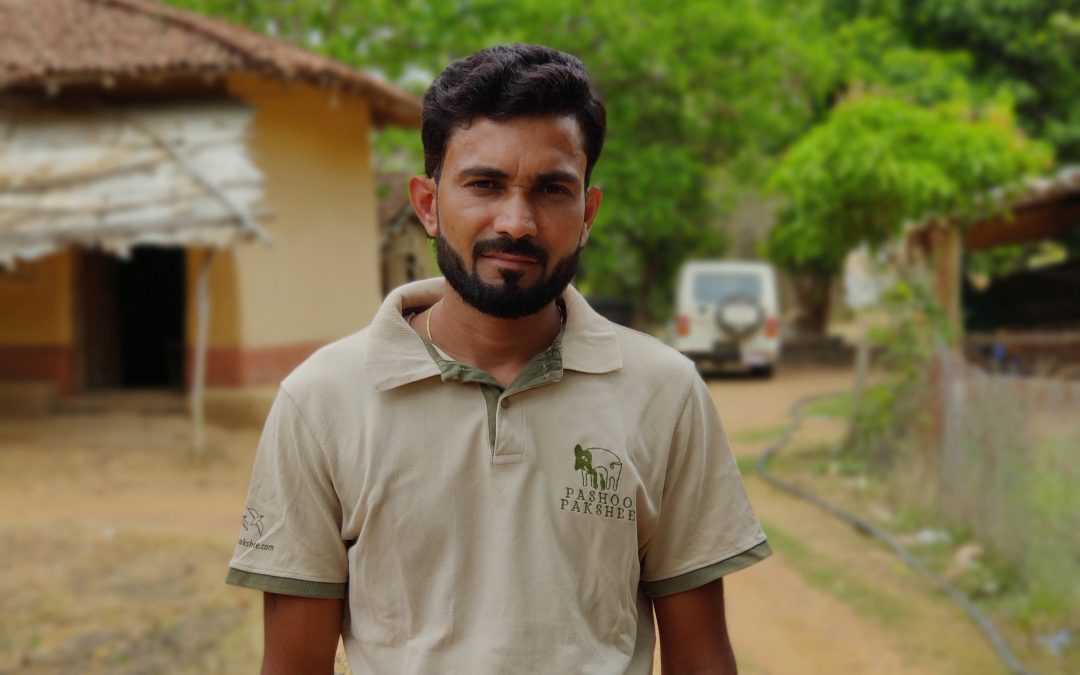Meet Dikesh Chaudhary, Assistant Project Officer at The Corbett Foundation. A local from Sarasdol village near Kanha Tiger Reserve, Dikesh shares his on ground experiences and speaks about the changes he has seen in his region
1.Tell us more about yourself and what got you interested in working for the environment
I hail from Sarasdol village near Kanha Tiger Reserve and have been associated with the Corbett Foundation (TCF) since 2012. I was working in a couple of NGOs prior to that and my main reason for joining TCF was that it was working with communities in and around our village. During my early days here, I was working with the team to provide training to the locals for sustainable livelihoods. Along with livelihoods, I have also been assisting the team to deliver relief schemes and medical and veterinary care due to which a got an opportunity to learn a lot. Being a local, I am able to effectively communicate our initiatives to the community.
2. How does a typical day unfold for you / Tell us a bit about your daily tasks and conservation work
I try to split my time between different projects which are currently underway. This involves a mix of operational and accounts related work at our center here in Kanha, and a bit of field work that involves interaction with locals. During these interactions, we speak to the local community about our conservation initiatives and encourage them to adopt them. We communicate with them in their local language as they are likely to pick up the message faster.
3. What do you love about your current job
I was always very passionate about livelihood-based conservation initiatives. At TCF, I always look forward to encouraging more youth and women from the local community to join the sustainable livelihood training programs that we conduct. As we try and link sustainable livelihood opportunities with many of the other projects like stall feeding, I love working on them also.

Dikesh with the other TCF team members during a cleanup drive in Kanha Tiger Reserve
4. Could you share a key learning or experience from the field
The one key thing that I have learned is that any conservation or welfare initiative for the local community only proves valuable if one spread awareness effectively about their advantages. Be it an initiative related to community health, education, or wildlife conservation, spreading awareness is very important.
5. Do you feel optimistic about the future of the natural environment of India/ Have you experienced a positive change regarding conservation in your area
Earlier there were no NGOs working actively in this region. But now after seeing our initiatives, even the government is undertaking initiatives for conservation.
As the usage of LPG cylinders has become widespread, there is reduced consumption of fuelwood too. Interest in wildlife is also increasing slowly due to awareness programs. If community members spot any wildlife movement in the village, they make it a point to inform us about it as they are aware of our conservation work.
If we speak about agriculture, earlier the community in this region only undertook paddy cultivation and did not grow vegetables. To combat this, we helped organize some trainings for them through which they learned about the sustainable SRI system of rice cultivation and about drip irrigation. Now sustainable agriculture has become a good livelihood option for the local community. Hence it would be apt to say that certain things are changing.

